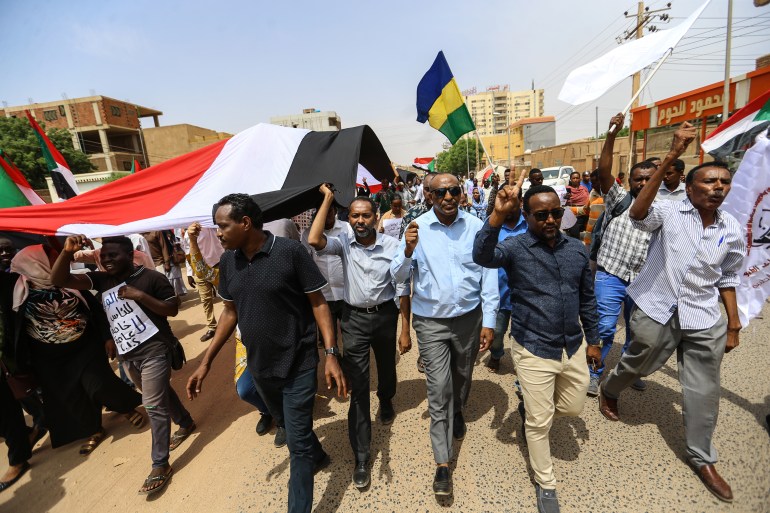On Tuesday, demonstrations denounced tribal violence and demanded the handover of power to civilians renewed in the Sudanese capital, Khartoum, and witnessed the participation of isolated political leaders.
Al-Jazeera correspondent in Sudan reported that the demonstration called by the "Forces of Freedom and Change - the Central Council" withdrew from the Bashdar area, south of Khartoum, after unidentified assailants fired tear gas canisters at it.
The protest demonstration was launched to denounce tribal violence and demand the handover of power to civilians, and the participants raised slogans denouncing what they described as racism and tribalism.
The demonstrators also called for strengthening the unity of Sudan and pushing back the racial strife that some parties to the ongoing political conflict have fueled, as they described it.
Al-Jazeera correspondent added that a number of former leaders of the Sudanese Sovereignty Council and the isolated government of Abdullah Hamdok participated in the demonstration, including the former member of the Sovereignty Council Muhammad al-Faki and former Minister Khaled Omar Youssef.
The demonstration witnessed the participation of a number of former officials (Anatolia)
Last week, the Forces for Freedom and Change called for "the procession of Sudan's one nation in the capital and the states", on Sunday, before it was postponed to Tuesday.
On July 15, Blue Nile state witnessed clashes between the Alberti and Hausa tribes, which killed 109 people, according to a statement by the state's Minister of Health, Gamal Nasser, which led to several demonstrations in Khartoum and other cities to denounce tribal violence.
During the past days, several Sudanese cities, including the capital, Khartoum, also witnessed protests condemning the incidents of tribal violence.
The tribal clashes took place after calls from the "Hamj" tribe to expel the "Hausa" tribe from the Sudanese state, as they are "non-indigenous people" in it.
On Monday, the United Nations revealed the displacement of more than 31,000 people, as a result of the recent tribal clashes in the southeast of the country.

